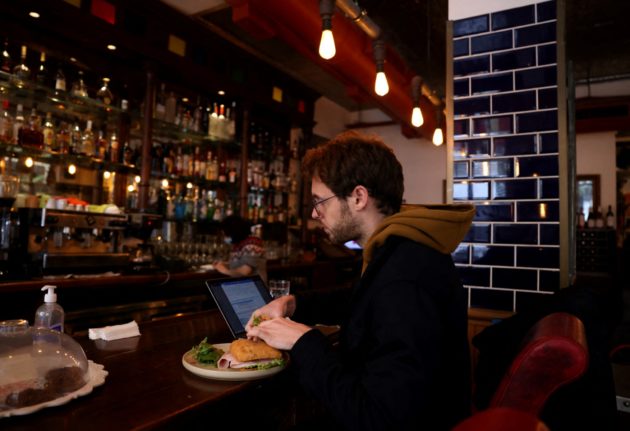This option is not only available to those with French nationality, but also to foreigners who have worked in France, and is set to be expanded so that more groups – including self-employed people – can benefit from it.
Who can qualify for phased retirement?
On a general level, you must be; old enough, have contributed a certain number of quarters to the French pension system, and be employed with one or more salaried activities (although from September 1st certain groups of self-employed workers can also qualify).
Part time – The first step is to ask your boss if you can drop down to part-time hours. As part of the expansion of the scheme, from September 1st bosses have two months to reply in writing to your request – if they don’t reply that is taken as an agreement. If they refuse, they will also have to justify why you working part time would damage the company.
To qualify for the phased retirement, your new hours must be between 40 percent and 80 percent of full-time hours.
Minimum career length – The next requirement is that you must have contributed at least 150 quarters (trimestres) to your pension – so in other words you must have worked for at least 37.5 years. Those who have ‘blended careers’ – ie they have worked in France and at least one other country usually get their pensions calculated on a pro rata basis, but should check their individual pension status to see if they qualify.
Minimum age – And finally the last condition is age related: you must be within two years of the minimum retirement age. Previously, this meant workers over the age of 60 would qualify, as they were just two years short of 62.
However, French pension reform means that in the coming years the retirement age will gradually increase to 64 between September 2023 and 2030. Anyone born after 1973 will have to wait until 64 to fully retire, whereas the situation is a bit different for those born between 1960 and 1972. You can find out your estimated retirement age by looking at The Local’s table.
In terms of which types of careers qualify, previously phased retirement was only available to salaried employees, tradespeople (artisans) and retailers. However, from September 1st that will be extended to civil servants, lawyers and self-employed people who work in ‘professions libéreaux‘ such as journalists.
How long can I have a phased retirement?
Technically, you can stay on a phased retirement plan for as long as you meet the part-time working conditions. Each year, you will need to provide continued proof of your work status by responding to a questionnaire sent by the French government.
Those who fail to respond will see their phased pension suspended.
Once you are ready to retire fully, you can send in a request for ‘retraite personelle‘ to your caisse régionale.
How much of my pension will I get?
It depends on how much you are working and how much your personal pension rate is valued at.
For someone who continues work at 80 percent of their previous full-time schedule, then they would benefit from 20 percent of what their pension pay-out would be.
In order to calculate what your pension pay-out would be, you can try using this French government simulator.
READ MORE: EXPLAINED: The website to help you calculate your French pension
Things to consider before deciding on phased retirement
If you have worked outside of France for part of your career, keep in mind that the phased retirement allocation is based on the amount that you would get from your French pension. This guide will help you calculate a pension for a blended career.
READ MORE: Pensions: What should I expect if I worked in both France and a non-EU country?
You will also want to consider the time that would be involved in requesting a new contract for part-time work, as well as the drop in income you might be taking on. For some workers, the portion of your monthly income made up by the phased-pension allocation will be less than what you would earn on a full-time salary.
Workers should also consider the fact that applying for phased retirement prior to the minimum retirement age will mean that they contribute less overall to their total pension, which would decrease its value in the long-term.
In some cases, you may be able to ask to continue contributing to your pension at a full-time value while working part time, but you will need your employer to agree to this.
What are the steps to apply?
The first step is to get your work contract changed to reflect your part-time schedule.
The next step is to gather the necessary documents: proof of your civil status, your RIB, a copy of your last two tax returns, a copy of your part-time contract, a certificate from your employer specifying how many hours count as full-time in your company. For foreigners, you will need to include your titre de séjour.
You must send your application, which includes filling out this form, to l’Assurance Retraite. You can do so online or by mail.



 Please whitelist us to continue reading.
Please whitelist us to continue reading.
Member comments